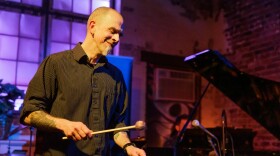Robert David Grusin was born in Colorado to musical immigrant parents. Grusin’s father was a violinist born and raised in Latvia. Grusin's mother a pianist of Jewish ancestry. After graduating from the University of Colorado at Boulder in 1956, he quickly moved into what would become a very prolific music career.
He recorded his first single in 1962, the same year he became the music director for the popular TV variety show, The Andy Williams Show where he remained through 1967. In those same years he was recording albums and writing music for television.
In 1967, while at The Andy Williams Show and working on 27 TV episodes, he found the time to score the soundtracks for two very big movies: Divorce American Style and The Graduate.
1968 proved an even bigger year for the composer, arranger, conductor and musician. He scored 79 TV episodes and four movie scores. For the next 10 years, Grusin continued to work in film, television, recording albums, and producing music for other artists.
In 1978, Grusin put on a new hat and added it to all the ones he already established for himself. GRP Records was a natural outgrowth of his music business, known as Grusin-Rosen Productions.
They focused on the recording fidelity with a relentless commitment to sound that inspired them to create the first all-digital jazz record label. This vision and dedication helped lead the music industry and ushered in digital recording and the format of compact discs.
Some of the artists that built their careers through GRP were Kevin Eubanks, Arturo Sandoval, Earl Klugh, Chick Corea, Gerry Mulligan, The Yellowjackets and NY Voices. GRP also amplified the careers of studio musicians including Lee Ritenour, Harvey Mason, Gary Burton, Tom Scott, Marcus Miller and Michael Brecker. GRP Records was nominated for 80 Grammy awards, winning 33.
The film projects for Grusin rolled on and the nominations for Golden Globes, Oscars and Grammys rolled in for the films On Golden Pond, Tootsie, The Goonies, The Milagro Beanfield War, The Fabulous Baker Boys, The Firm, Havana, Heaven Can Wait.
And for TV programs: Maude (1972), Good Times (1974), Baretta (1975), St. Elsewhere (1982), and This Is America, Charlie Brown.
And for recordings: His song "Early A.M. Attitude" with friend and guitarist Lee Ritenour and the soundtrack to the film Selena.
In 1998, Grusin ranked No. 5 on Billboard's Top Jazz Artists. From 2000 to 2011, Grusin concentrated on composing classical and jazz compositions, touring and recording with collaborators, including jazz singer and lyricist Lorraine Feather and guitarist Lee Ritenour.
According to AllMusic, Grusin has over 3,000 credits as composer, producer, arranger, conductor and performer. All in – Grusin has one Academy Award with eight nominations, 10 Grammy Awards with 38 nominations, and four Golden Globe nominations.
In 2019, the documentary Dave Grusin: Not Enough Time was directed and produced by two award-winning jazz musicians, Barbara Bentree and John Rangel. And in the words of Bentree: “Dave Grusin is one of the most hardworking and accomplished musicians of the past century.”
During the documentary there’s a clip of the keyboardist and composer seated at his piano during a concert. He tells the audience: “I have a gratitude factor that can’t even express about being allowed to have this kind of life.”
From his 2019 KNKX Studio Session with Lee Ritenour, he said he now looks at his career this way:
“How do you tell when it’s time to hang it up, you know? And, the truth is, I used to be so busy with film scores or TV scores writing, I’ve hadn’t thought about this consciously but recently I thought, 'I’m going to sit down and write something about this," he said.
"The truth is I have substituted all that with being able to go out with this cat and these bands and that’s become my musical life, you know...I’m not ever going to stop doing music and this has taken over that part of my career.”








